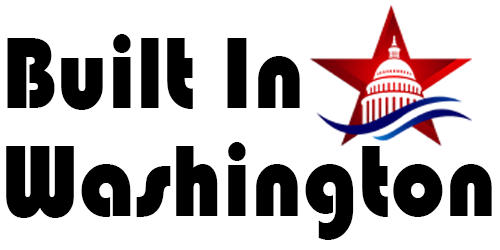Washington State boasts a robust and diverse transportation industry, with companies spanning various sectors contributing to the region‘s economic growth and mobility. From major airlines to trucking and logistics firms, rail providers to public transit agencies, the Evergreen State is home to a wide array of businesses that keep people and goods moving. In this article, we‘ll explore the key players in Washington’s transportation field and discuss the challenges and opportunities they face in 2025.
What Companies are in the Transportation Field in Washington
Washington State is a hub for transportation companies, with a wide range of businesses operating in the industry. These companies play a crucial role in the state’s economy, facilitating the movement of people and goods across the region. Some of the most prominent sectors within Washington’s transportation field include airlines, trucking and logistics, rail transportation, public transit, and emerging technologies.
Overview of Washington’s Transportation Industry
Washington’s transportation industry is a vital component of the state’s economy, employing thousands of people and generating billions of dollars in revenue annually. The sector encompasses a diverse range of companies, from small local businesses to large multinational corporations. These companies work together to ensure the smooth flow of people and goods throughout the state, connecting cities, towns, and rural areas.
The transportation industry in Washington has experienced significant growth in recent years, driven by factors such as population growth, increased trade, and technological advancements. In 2025, the industry continues to evolve and adapt to new challenges and opportunities, such as the need for more sustainable transportation solutions and the impact of the COVID-19 pandemic on travel patterns.
Major Airlines Operating in Washington
Washington State is home to several major airports, including Seattle-Tacoma International Airport (SEA), which serves as a hub for Alaska Airlines and a major gateway for Delta Air Lines. These two airlines are among the largest carriers operating in the state, offering domestic and international flights to destinations across the globe.Other notable airlines with a significant presence in Washington include:
- United Airlines
- American Airlines
- Southwest Airlines
- JetBlue Airways
- Hawaiian Airlines
These airlines connect Washington to key cities across the United States and beyond, supporting both business and leisure travel. In addition to the major carriers, several smaller regional airlines, such as Horizon Air and SkyWest Airlines, operate flights within the state and to nearby destinations.
Leading Trucking and Logistics Companies
Trucking and logistics companies play a vital role in Washington’s transportation industry, ensuring the efficient movement of goods across the state and beyond. Some of the leading trucking and logistics firms in Washington include:
- Convoy: A Seattle-based digital freight network that connects shippers with carriers, optimizing routes and reducing empty miles.
- Expeditors International: A global logistics company headquartered in Seattle, offering supply chain solutions for air and ocean freight, customs brokerage, and more.
- Gordon Trucking: A Pacific, WA-based trucking company with a fleet of over 2,000 trucks, serving customers throughout the United States.
- Hogland Transfer Company: A family-owned trucking and warehousing business based in Yakima, WA, specializing in the transportation of agricultural products.
- Oak Harbor Freight Lines: A regional less-than-truckload (LTL) carrier headquartered in Auburn, WA, serving the Western United States.
These companies, along with numerous other trucking and logistics firms, ensure that Washington’s businesses have access to reliable and efficient freight transportation services, supporting the state’s economy and supply chains.
Rail Transportation Providers Serving the State
Rail transportation plays a significant role in Washington’s transportation network, moving both passengers and freight across the state. The primary rail transportation providers in Washington include:
- Amtrak: The national passenger rail service operates several routes in Washington, including the Cascades line, which connects Seattle, Tacoma, Olympia, and Vancouver, WA, with Portland, OR, and Eugene, OR.
- BNSF Railway: One of the largest freight railroad networks in North America, BNSF operates extensive rail lines throughout Washington, transporting goods such as agricultural products, energy products, and consumer items.
- Union Pacific Railroad: Another major freight rail provider, Union Pacific serves Washington with a network of rail lines, connecting the state to key markets across the United States.
- Sound Transit: The regional transit authority operates the Sounder commuter rail service, which connects Seattle with Tacoma, Everett, and other cities in the Puget Sound region.
These rail transportation providers offer a more sustainable and efficient alternative to road-based transportation, helping to reduce congestion and emissions while supporting the movement of people and goods throughout Washington.
Public Transit Agencies in Key Metropolitan Areas
Public transit agencies play a crucial role in providing accessible and affordable transportation options for Washington‘s residents, particularly in the state’s key metropolitan areas. Some of the most notable public transit agencies in Washington include:
- King County Metro: Serving the Seattle metropolitan area, King County Metro operates an extensive network of bus routes, as well as the Seattle Streetcar and the King County Water Taxi.
- Sound Transit: In addition to the Sounder commuter rail, Sound Transit operates the Link light rail system, which connects Seattle with SeaTac Airport, Tacoma, and other cities in the Puget Sound region.
- Pierce Transit: Serving Pierce County, including Tacoma and its surrounding areas, Pierce Transit operates a network of bus routes and provides paratransit services for individuals with disabilities.
- Spokane Transit Authority (STA): The primary public transit provider for the Spokane metropolitan area, STA operates bus routes, paratransit services, and the Spokane Plaza, a central hub for transit connections.
- Community Transit: Serving Snohomish County, including Everett and its surrounding areas, Community Transit operates a network of bus routes and provides vanpool services for commuters.
These public transit agencies work to provide accessible, reliable, and affordable transportation options for Washington‘s residents, helping to reduce traffic congestion, improve air quality, and support the state‘s economic growth.
Emerging Transportation Technologies and Startups
Washington State, particularly the Seattle metropolitan area, has become a hub for emerging transportation technologies and startups. These companies are driving innovation in the industry, developing new solutions for mobility, sustainability, and efficiency. Some notable examples include:
- Zoox: An autonomous vehicle startup based in Seattle, Zoox is developing fully autonomous electric vehicles for ride-hailing and delivery services.
- Rad Power Bikes: A Seattle-based electric bike manufacturer, Rad Power Bikes offers a range of e-bikes for commuting, recreation, and cargo transportation.
- Remitly: While not strictly a transportation company, Remitly is a Seattle-based fintech startup that provides international money transfer services, which are often used by immigrants to send money to their families abroad for transportation expenses.
- INRIX: A Kirkland, WA-based company that provides transportation analytics and connected car services, helping cities and businesses optimize traffic flow and improve mobility.
- Glympse: A Seattle-based company that offers location sharing and tracking services, which can be used for fleet management, delivery tracking, and other transportation-related applications.
These emerging transportation technologies and startups are helping to shape the future of mobility in Washington and beyond, offering new solutions for the challenges faced by the industry and creating new opportunities for growth and innovation.
Challenges and Opportunities for Transportation Businesses
Transportation companies in Washington face a range of challenges and opportunities in 2025. Some of the key challenges include:
- Regulatory pressures: Transportation companies must navigate a complex web of federal, state, and local regulations, which can impact their operations and profitability.
- Infrastructure constraints: Washington’s transportation infrastructure, including roads, bridges, and railways, requires ongoing maintenance and upgrades to support the growing demands of the industry.
- Workforce shortages: Many transportation companies struggle to attract and retain skilled workers, particularly in fields such as trucking and logistics.
- Environmental concerns: As the focus on sustainability and climate change grows, transportation companies face pressure to reduce their environmental impact and adopt more eco-friendly practices.
Despite these challenges, there are also significant opportunities for transportation businesses in Washington, such as:
- Technological advancements: The adoption of new technologies, such as autonomous vehicles, electric vehicles, and blockchain, can help transportation companies improve efficiency, reduce costs, and enhance customer experiences.
- E-commerce growth: The continued growth of e-commerce is driving demand for efficient and reliable transportation and logistics services, creating new opportunities for companies in these sectors.
- Public-private partnerships: Collaboration between transportation companies and public agencies can help address infrastructure challenges and improve mobility options for Washington’s residents.
- Sustainable transportation solutions: As demand for eco-friendly transportation grows, companies that offer sustainable solutions, such as electric vehicles or bike-sharing services, may find new opportunities for growth.
By addressing these challenges and seizing these opportunities, transportation companies in Washington can position themselves for success in the years ahead.
Future Outlook for Washington’s Transportation Sector
As Washington looks to the future, the state’s transportation sector is poised for continued growth and transformation. Some key trends and developments that are likely to shape the industry in the coming years include:
- Continued adoption of electric and autonomous vehicles: As technology advances and consumer preferences shift, the use of electric and autonomous vehicles is expected to grow, reshaping the transportation landscape in Washington and beyond.
- Expansion of public transit: With increasing urbanization and concerns about traffic congestion and environmental impact, the demand for efficient and accessible public transit options is likely to grow, leading to further investment in systems like light rail and bus rapid transit.
- Growth of micro-mobility solutions: The popularity of micro-mobility options, such as bike-sharing and scooter-sharing services, is expected to continue, providing new options for short trips and last-mile connections.
- Increased focus on sustainability: As the impacts of climate change become more apparent, transportation companies will face growing pressure to adopt sustainable practices and reduce their carbon footprint, driving innovation in areas like alternative fuels and energy-efficient vehicles.
- Integration of transportation and technology: The convergence of transportation and technology is expected to accelerate, with the development of smart cities, connected vehicles, and other innovations that leverage data and digital technologies to improve mobility and efficiency.
By embracing these trends and investing in the necessary infrastructure and workforce, Washington’s transportation sector can continue to thrive, supporting the state’s economic growth and quality of life for its residents.




